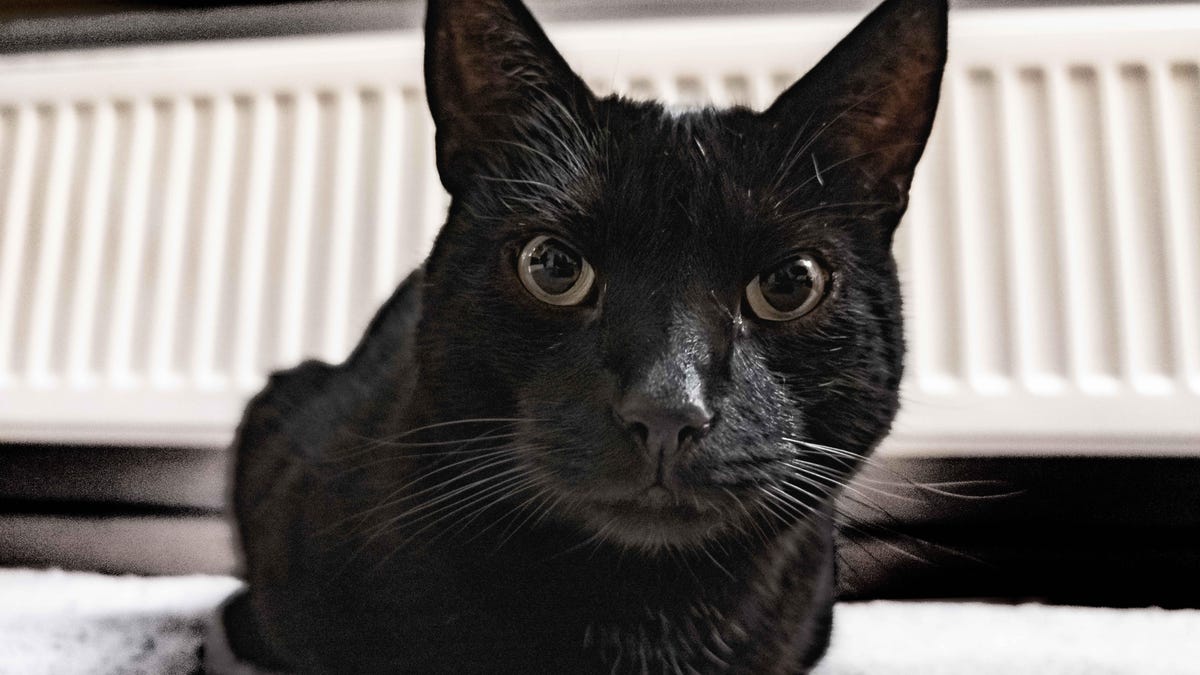 Why You Can Trust CNET
Why You Can Trust CNET Cat Pee on Your Couch? Here's What to Do
Cat pee is one of the most stubborn smells to remove from soft surfaces. These tips can help you get rid of it.

Cats are great pets, but their mess can be a real headache.
Cats are wonderful pets, and my life is much richer for owning one. But cats can wreak havoc on your home, especially your furniture. Between scratching and all of the hair that your cat can shed, pet ownership can be rough on your furniture.
Perhaps the worst aspect of cat ownership is how stubborn and frankly, gross, their pee can be. Sometimes, if your cat is stressed or suffering from some other emotional affliction, your cat can pee on your sofa. While this isn't your cat's fault, it can still be a frustrating problem that you need to fix if you want to keep using your couch.
So, if your cat has made a mess of your furniture, and you're not sure how to clean it, we've got you covered. Here are the steps you need to take to remove cat pee from your couch.
For more, here's what you need to know about dogs eating cicadas and the best cat toys (according to CNET's cats).
Strip your sofa immediately
Cat urine stains will set quite quickly, so the best first step to take is to immediately strip all affected fabrics from your couch, and throw them in the washing machine. This means that couch cushion covers, pillow cases and blankets need to be washed as soon as possible.
If you let the cat pee sit for too long, it can seep into the cushions of your couch, and potentially ruin your favorite piece of furniture. So, quick action is necessary to ensure a full removal of your cat's urine.
If your couch covers are non-removable, my best advice is to follow the rest of the steps as best you can. Tackling the stain as soon as you can is the best thing you can do, since you won't be able to remove the afflicted fabric from your couch.
Locate all potential stains
If it's been a regular occurrence of your cat urinating on your furniture for a while, it's possible there could be more than one stain on your sofa. If these stains aren't detectable by sniffing them out, you might want to use a black light to help scope out any other stains. According to San Francisco SPCA, cat pee will show up as a yellow-green color.
If you don't have a black light, or there are too many stains to tackle, it may be time to call in a professional to deep clean your couch.
Use an enzymatic cleaner
When it comes to getting cat pee out of furniture, the goal is to find a cleaner designed for pets. What you shouldn't use, according to the ASPCA, is an ammonia-based cleaner to clean up any cat urine, since cat pee (or any urine) contains ammonia. Instead, you'll want to opt for an enzymatic cleaner, my family uses this one. An enzymatic cleaner is a cleaning agent that uses bacteria to create enzymes that will break down the stain you're attempting to clean up.
Chewy, a pet care retailer, recommends not only thoroughly saturating the stain with the cleaner, but also the area around the stain. Additionally, you should follow both the instructions that your sofa manufacturer has for cleaning your couch and the instructions on the cleaner you're using.
How to stop your cat from peeing on your couch
If your cat is repeatedly urinating on your couch, take a second and think about what could potentially be getting them down. It is most likely due to some stressor that has been introduced into their lives. Cats are sensitive animals, and changes that might not seem significant to us can be turbulent for your kitty.
There are a multitude of reasons why your cat might be feeling stressed; maybe you moved recently, you brought home a new pet or your cat is in conflict with another cat in your home or neighborhood.
The ASPCA offers some suggestions of ways you can help alleviate some of your cat's stressors. You can add more litter boxes to your cat's space, create a safe space for only your cat to use, carve out extra time to play with your cat and more.
When my family brought home our new puppy several years ago, it stressed out our cat, and she was taking it out on our furniture. To make the transition a bit easier on her, we made sure she had a space that was all hers, completely separate from the new puppy.
If you notice that your cat is continuing to pee on your furniture regardless of any intervention, you can always take a trip to see your veterinarian.
For more, here's the best dog food delivery services of 2024 and CNET's review of the Whisker Litter Robot.

